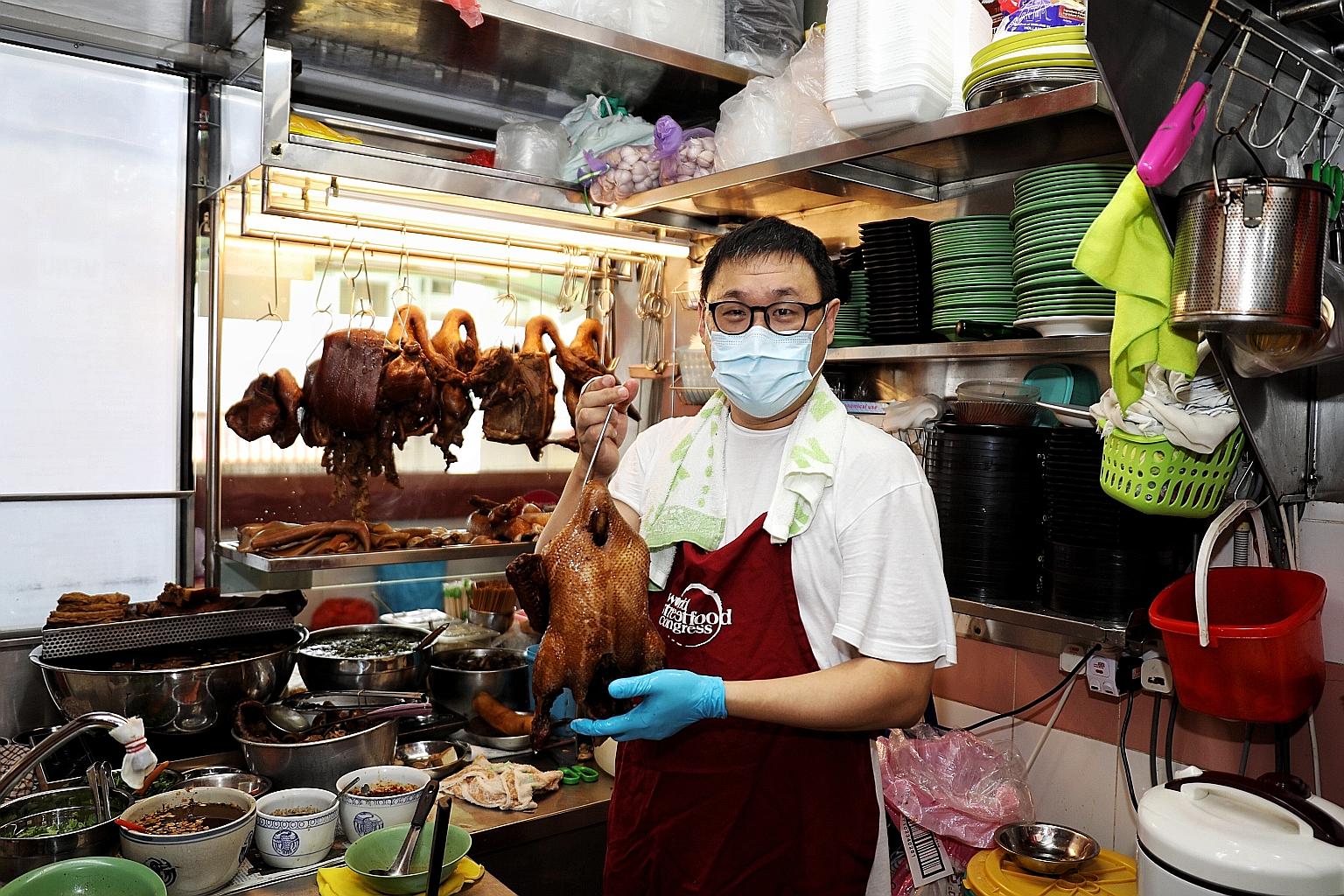Singapore's hawker culture finds place on Unesco heritage list
Sign up now: Get ST's newsletters delivered to your inbox

Hawker Melvin Chew of Jin Ji Teochew Braised Duck & Kway Chap at his stall in Chinatown Complex Food Centre. A 24-member international committee has unanimously accepted Singapore's application to have the country's hawker culture added to the Unesco intangible cultural heritage list.
ST PHOTO: JOEL CHAN
Singaporean to the core, conjuring up sights and smells instantly recognisable to locals everywhere, the nation's hawker culture has been officially added to the Unesco Representative List of the Intangible Cultural Heritage of Humanity.
In virtual proceedings that took place last night, a 24-member international committee unanimously accepted Singapore's application to have this tradition be internationally recognised.
The process took all of three minutes, after nearly three years of work by the National Heritage Board, the National Environment Agency and the Federation of Merchants' Associations. As Singapore's application fulfilled all criteria, it was decided that there was no need for debate on it at the 15th session of the intergovernmental committee.
The successful nomination means Singapore now has its first item on the intangible cultural heritage list, which currently has more than 460 entries, including yoga in India and Belgian beer.
It is also the country's second entry to any Unesco list, with the first in 2015 when the Singapore Botanic Gardens was designated a Unesco World Heritage Site.
Mr Edwin Tong, Minister for Culture, Community and Youth, in a pre-recorded video, told an international audience after the announcement last night: "Singapore's hawker culture is a source of pride for Singapore and all Singaporeans. It reflects our living heritage and multiculturalism, and is an integral part of the daily lives of everyone in Singapore regardless of age, race or background.
"I thank all our hawkers and Singaporeans for their overwhelming support of this nomination... We pledge to do our part to safeguard our intangible cultural heritage."
Having hawker culture on the list commits Singapore to protecting and promoting it. The country has to submit a report every six years to Unesco, showing the efforts made to safeguard and transmit hawker culture to future generations.
Both President Halimah Yacob and Prime Minister Lee Hsien Loong took to Facebook to thank those involved in the nomination process.
Madam Halimah said hawker culture has shaped Singaporean identity in many ways, and contributed to the diversity of Singapore's multicultural society.
PM Lee said the nomination journey had been a fruitful one. "The biggest thanks must go to the generations of hawkers for nourishing a nation's stomach and spirits. This recognition would not have come without their sweat, toil and dedication to their profession," he said.
The development is timely for the hawker sector here, which has in recent years found it difficult to attract young people to a trade that calls for 16-hour work days in hot, cramped stalls.
The authorities have sought, through traineeship programmes and monetary subsidies, to lower the barriers to entry for young aspiring hawkers. Since 2013, the median age for new entrants has been lowered to 46, although the overall median age for hawkers nationwide remains 59.
Singapore's submission - Hawker Culture In Singapore: Community Dining And Culinary Practices In A Multicultural Urban Context - was made in March last year, although preparations began earlier, in February 2018.
To celebrate the global recognition, the authorities said a three-week SG HawkerFest will be launched on Dec 26.
Due to the Covid-19 pandemic, activities will mostly take place online, including treasure hunts and quizzes that can be completed and then used to redeem vouchers that can be used at 29 participating hawker centres.


